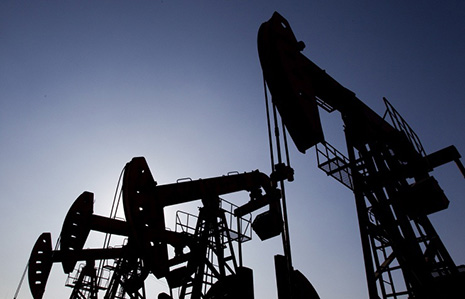Russian minister says collapse of oil prices may press down global demand in economy

He said the Russian side had told a conference of finance ministers and presidents of central banks of the G20, held here on Monday night, Moscow believed that the falling prices of crude oil might press down the aggregate demand in the world economy and put brake on the rates of economic growth.
Global economy would most likely produce a highly variegated reaction to the sharp oscillations of prices of mineral resources, including oil. A drop in revenues from exports entailed a decrease of the real effective exchange rate and the shrinkage of the domestic and external demand, thus considerably squeezing the imports, Siluanov said.
On the face of it, the slide of demand on the part of exporter countries would not be fully made up for by the importer countries, he said.
In a typical situation, a fall of mineral resource prices and the weakening of inflationary expectations made it possible to stimulate economic growth through milder monetary and lending policies. But deflationary anticipations existed in some developed economies at the same time and the bank rates were already at an almost zero level.
Besides, deflationary pressures might grow because of a reduction of commodity supplies to the countries exporting mineral resources. For the importer nations that were not feeling deflationary pressures, the opportunity to stimulate demand was restricted by the imbalances accumulated previously — the current account and budget deficits and anticipations of a rise of the US rate of discount.
"This means that the cumulative effect from the current steep fall of prices for resources may enfeeble the aggregate demand in world economy and this in turn will slow down its growth rates," Siluanov said.
He indicated that he saw a way out of the current situation in the stimulation of demand in the regions where opportunities for this existed, including the use of monetary and lending policies and in structural reforms. However, these measures were to be weighed out carefully.
Also, Siluanov pointed to a possible decrease of the inflow of investment from the economies dependent on mineral resource exports in the securities issued in the US, EU and other developed economies. "This will occur due to the shrinkage of foreign exchange, gold reserves, which is only natural in such situations," he said.
Siluanov also mentioned the likelihood of problems related to financial instability of oil companies in the resource-exporting countries. If bankruptcies in that sector reached considerable dimensions, they would harm the financial system and future investments in the industry on the global scale, he said.
"If you weigh all these factors properly, it may turn out that the decrease of oil prices isn’t favorable for the world economy to extent that experts tend to speak about," Siluanov said.
He stressed the importance of watching how the shifts of demand for commodities and investment caused by the change of oil prices influenced various groups of countries and, in the final count, the global economy.
"We raised the problem here and we believe a deeper analysis of the impact of falling oil prices on various countries is needed," Siluanov said.















































